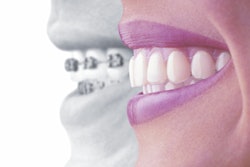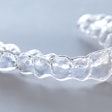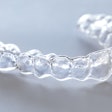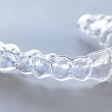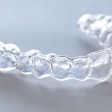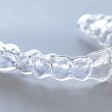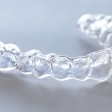
A U.S. district court has ruled on October 26 that Propel Orthodontics has "disseminated false and misleading advertisements" for its tooth aligners, while granting a preliminary injunction against the company in favor of OrthoAccel Technologies.
In the preliminary injunction, Judge Amos Mazzant of the U.S. District Court in the Eastern District of Texas enjoined Propel from making specific claims in its advertising of its VPro5 accelerated tooth aligner product. OrthoAccel manufactures a competing product, AcceleDent Aura, and filed a lawsuit in July seeking injunctive relief.
"The Court understands that this decision will have a considerable impact on the livelihood of both companies. But the irreparable harm that OrthoAccel will suffer if the Court does not enjoin Propel from disseminating false advertising greatly outweighs Propel's likely loss in sales," Mazzant wrote in his ruling.
July lawsuit
OrthoAccel launched its class II AcceleDent device in the U.S. in 2012. The next year the company introduced the AcceleDent Aura, initially cleared by the U.S. Food and Drug Administration to be used with braces only. On July 8, 2016, the Aura was cleared for use with clear aligners, according to the ruling.
In January 2016, Propel introduced a vibratory class I device designed to help seat clear aligners. In March, the company released the VPro5. The product operates at 120 Hz and requires five minutes of daily use to properly seat clear aligners, according to the ruling. The ruling further noted that the VPro5 costs "significantly less" than the OrthoAccel Aura.
In July, OrthoAccel filed a motion seeking "injunctive relief from Propel's alleged false advertising under the Lanham Act."
False advertising claim
The Lanham Act, from 1946, protects the owner of a federally registered trademark "against the use of similar marks if such use is likely to result in consumer confusion," according to the Legal Information Institute.
Mazzant wrote that the elements of a false advertising claim under the Lanham Act are as follows:
- The defendant made a false statement of fact about its product in a commercial advertisement.
- The statement actually deceived or had a tendency to deceive a substantial segment of its audience.
- The deception was material or likely to influence the purchasing decision.
- The defendant caused the false statement to enter interstate commerce.
- The plaintiff has been or is likely to be injured as a result.
Working through these categories, Mazzant wrote that Propel claimed at the introduction of the VPro5 that there are "significant clinical findings that support the VPro5's ability to increase bone formation and accelerate tooth movement."
"But no such studies existed. The claim that Propel had 'many studies' to support its claims is literally false, because at the time the sales force engaged the marketplace, there were no clinical findings or studies supporting the notion that the VPro5 could provide its 5 Clinical Benefits," he wrote.
Mazzant also noted that "[a]nother literally false statement appears in the same document," which states the VPro5's 120 Hz is the "optimal frequency" for achieving the five clinical benefits.
"This claim is completely unsubstantiated and literally false," he wrote.
Mazzant continued, stating that OrthoAccel had "proven actual deception" by showing that Propel's claims are "misleading and have deceived the doctors and staff to whom Propel markets the VPro5."
OrthoAccel submitted several screen captures of multiple dentists' websites to support their claim that dentists were deceived and that this influenced their purchasing decisions. That company also offered a declaration from Mark Batesole, DDS, who received a marketing email from a Propel sales representative announcing the launch of the VPro5, which summarized some advantages of that product and compared its cost with AcceleDent.
Dr. Batesole stated he "understood that Propel was introducing a competing device [to] AcceleDent" and "would expect the VPro5 to have scientific support, similar to AcceleDent," Mazzant wrote.
"This declaration proves actual deception, which is more than what is required for injunctive relief," he noted.
OrthoAccel also had to prove it had suffered an injury. OrthoAccel's CEO Michael Lowe testified that his company is losing market share to Propel. He testified that OrthoAccel's annual operating plan and revenues varied by 7% in 2014 and 2% in 2015, but in 2016, from April to July, the variance was 57% following the launch of the VPro5.
In its defense, Propel provided a 43-day period of sales data in July and August 2016 to OrthoAccel for comparison. Propel's sales were $1.4 million and "OrthoAccel's sales declined by over $300,000, to $1.1 million," according to the ruling.
"This data supports that OrthoAccel is losing market share to Propel," Mazzant wrote.
In its defense, Propel argued that OrthoAccel was trying to prevent legitimate competition from entering the marketplace.
"But Propel is not legitimate competition. Propel disseminated false and misleading advertisements throughout its participation in the marketplace. The Court finds that OrthoAccel has met its burden in proving irreparable harm," Mazzant wrote.
Propel can continue marketing
In his ruling, Mazzant wrote that Propel is enjoined from "representing ... in any advertising" the following:
- VPro5 accelerates tooth movement.
- VPro5 stimulates bone growth and tooth remodeling.
- VPro5 fast tracks or otherwise aids retention.
- VPro5 relieves pain or discomfort.
- VPro5's higher frequency works better than AcceleDent's lower frequency.
- VPro5 is effective to accelerate tooth movement, stimulate bone growth and tooth remodeling, aids retention, or relieves pain in less time than AcceleDent.
However, Mazzant said he was not completely enjoining Propel from marketing its product.
"Propel can still claim that the VPro5 aids in aligner seating. It will only enjoin Propel from disseminating claims of the VPro5's 5 Clinical Benefits, which are false and misleading," he wrote.
Both companies claimed victory in separate press releases.
"This decision is an important victory for OrthoAccel Technologies and for our safe, clinically proven accelerated orthodontic treatment product, AcceleDent," OrthoAccel's Lowe stated in a release. "This is also a victory for the orthodontic industry in maintaining its high standards for patient safety and quality outcomes. It is wrong that doctors and patients were misled by a supplier's false claims."
Bryce Way, CEO of Propel, said the ruling was good news for his company in a release.
"This is good news for Propel," stated Way, because "our doctors are purchasing and reordering the VPro5 as a device to aid in aligner seating and are choosing [it] because it effectively seats aligners with only 5 minutes of use."
Way continued, stating that his company never made claims such as "tooth remodeling." "We never compared our product to any competing product, and so the Court's ruling doesn't require significant changes to our marketing," he noted.





